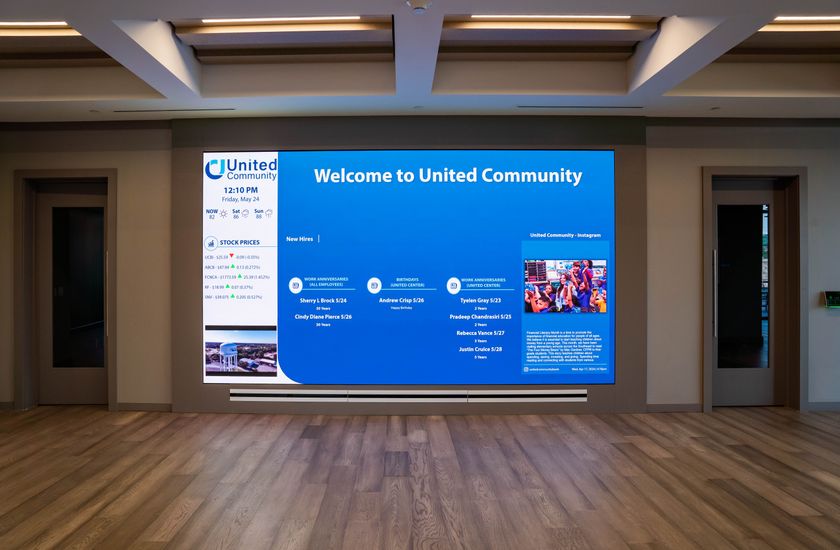Where at one time establishing a global presence was reserved for large multi-nationals with equally extended financial resources, today companies of all shapes and sizes are meeting with success when doing business on a global scale. The systems integration industry is no exception to this, and those organizations that have opened offices not only nationwide, but on an international basis as well, have done so largely because of client demand.
Verrex Corporation, a systems integration firm based in Mountainside, NJ, is one example of an organization that has expanded operations based on client demand. With offices in Boston, MA, and Tampa, FL, the company opened a location in the United Kingdom in September 2008. “Our international expansion was driven by our commitment to meet the needs of our clients, who have global needs,” explained George Massey, international executive director at Verrex Limited in the U.K. “The industry has evolved and grown to the point where clients are looking for standardization across the enterprise regardless of geography.” Customers find it easier, Massey added, to connect with one point of contact that can address their worldwide developments.
In June 2008, Richmond, VA-based systems integrator The Whitlock Group announced its collaboration with Impact, an AV integrator headquartered in Europe. Christened the Global Presence Alliance, this partnership leverages the two organizations’ operations, providing global clients with a single point of contact for design, engineering, integration, and maintenance. “We have worked out how we do business together, how we handle international opportunities and clients and target those, as well as how we handle revenue sharing and manufacturer distribution,” explained Roger Patrick, chief operating officer at The Whitlock Group in Dallas, TX.
Originally, the Global Presence Alliance was focused on the United States and Europe; now it has begun expansion with other partners in Canada, Asia, Australia, Africa, Mexico, and South America. “We really go through an extensive process to identify the right partners in each international territory that we think represent our value proposition and have comparable cultures, investment in technical resources, financial standing, and focus on ongoing customer support.”
Headquartered in New York, NY, consulting firm Shen Milsom & Wilke opened its second office in 1991—in Hong Kong. Today, the company boasts 13 additional locations that stretch across the country and the globe. Steven Emspak, partner, underlines that even though there are certain procedures that companies must follow when expanding, no matter the geographical location, it’s not advisable to take a cookie-cutter approach when establishing a presence in a new region—especially because regulations surrounding taxes, labor, and finance can vary widely. “It’s not like doing business in New York and opening up an office in Chicago or Denver, where, of course, you may have certain idiosyncrasies, but it’s nothing like international law and finance, where all of a sudden you can’t take any money out of a country unless you are willing to pay 20 percent tax on it,” he said. “It can be a rude awakening if you do not clearly investigate those specifics.”
Massey conceded that from an administrative perspective, the biggest issue is learning the local government requirements that apply to taxation, incorporation, and health and safety. This, he notes, requires the willingness to make the investment in people with the right knowledge and experience. “We enlisted legal counsel and an accounting firm that had local representation in the U.K.,” he said. “That’s a big financial commitment, but it was something that we felt we had to do to make sure that we didn’t come in and unwittingly break the law.” Verrex also sought out a knowledgeable CFO, Norman Fornella, who has experience in worldwide finance.
Culture, too, comes into play in a big way: sometimes, international clients may wish to deal with representatives from the U.S.-based headquarters, while in other cases the customer may prefer to do business with someone from their own country, or even region. “Being culturally sensitive becomes extremely important; what works here doesn’t necessarily work there,” Emspak cautioned.
It’s also important to take into account that national holidays differ from country to country, and that a significant part of the world doesn’t work Monday to Friday. In some areas of the Middle East, for example, Thursday and Friday constitute the weekend, and many cultures include Saturday as a normal workday. “To truly play in the international market, you yourself have to become international,” Emspak added.
While cultural awareness as it relates to the rest of the world is crucial, it’s also necessary to consider how you will fuse your own company culture with the one with which you’ll be dealing. This usually means that you can’t open up an international location without spending some time on foreign soil. “Often, you really have to be there,” Emspak said. “I can’t hire somebody in Europe or the Middle East and say, ‘By the way, this is how we go about doing business,’ without spending a lot of time doing business with them.”
Patrick noted that maintaining good relations with manufacturers is important, because distribution isn’t always the same as it is back home. “Normally, each area is very different and distinct in terms of how they deal with distribution and pricing,” he said. “You have to have very strong relationships with your manufacturers to be able to get them to be creative and open-minded in terms of how to approach global opportunities.”
There are also the obvious, but sometimes challenging, mechanics, such as time zones. While being spread across the map enables organizations to operate 24 hours a day, seven days a week, it does require some flexibility when it comes to collaborating with fellow team members in various locations. “Try to have a global call involving all offices when you are truly global,” Emspak only half-joked. “Somebody’s getting up very early and somebody’s going to sleep very late.”










